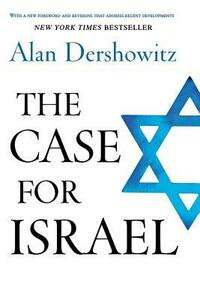Take a photo of a barcode or cover
I should re-read this with my new perspective on Zionism (as a Christian, I was blindly supportive of Israel). What I do recall, however, is that Dershowitz illuminates just how difficult it is to make firm condemnatory statements about Israeli behaviour in Palestine. There are so many interested parties, so much propaganda from both sides, that one almost never gets at the truth the first time around.

